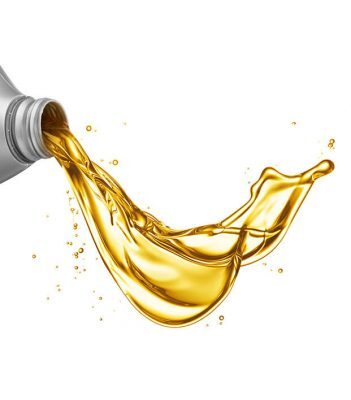The market offers many options for choosing lubricants intended for machine lubrication. The fact that the machine will work with a certain product does not mean that this product is indeed optimal for it. While incorrect specification of lubricants will not lead to sudden and catastrophic failure of the machine, it may shorten the average life of the lubricated components or reduce their efficiency over time, so that it is almost imperceptible.
When it comes to hydraulics, the choice of hydraulic oil should take into account two main considerations: the grade of viscosity and the type of hydraulic oil. The specifications are usually determined by the type of hydraulic pump and the temperature and pressure levels created by the system. Choosing industrial oils, which will be the best for your system, requires you to be aware of the information available on the subject.
Hydraulic oil – its role in the system
Hydraulic oils have many roles in the smooth operation of a well-balanced and well-designed system. These roles include:
- means of heat transfer
- A means of transmitting power
- means for cushioning and lubrication
Hydraulic fluids are available in different chemical compositions, and each chemical composition is intended to serve certain applications:
- Fully synthetic hydraulic fluid – designed to handle drastic fluctuations in temperatures and pressures. This liquid is a chain of man-made molecules, precisely arranged to provide:
- Excellent liquid stability
- pin
- And other characteristics that will improve the performance of the hydraulic fluid – synthetic hydraulic fluids are an excellent choice when it comes to a system operating at high or low temperatures and/or high pressure levels. This type of hydraulic fluid has several disadvantages such as: higher cost, toxicity and potential incompatibility with certain sealants.
- Petroleum fluid (mineral) – a more common fluid, which is made from crude distillation to the desired level, so that better performance of the lubricant can be achieved. This oil may contain additives such as:
- Anti-wear additive – AW (Anti-Wear)
- Additive that inhibits rust and oxidation – RO (Rust & Oxidation)
- And an additive to improve the viscosity index – VI (Viscosity Index)
- Water-based hydraulic fluid – a product intended to be used in applications where there is a risk of fire. Water-based fluids are the least common of the types of hydraulic fluids and are necessary, as mentioned, usually when there is a high probability of fire. However, these liquids do not have the ability to protect against erosion.
Price hydraulic oil – petroleum fluid offers an alternative that costs less than the synthetic fluid but performs similarly, especially when the petroleum fluid includes certain additives. Water based fluid is more expensive than the petroleum fluid but cheaper than the synthetic fluid.
Oils for industry
At IQS, which deals with the design, development, production and assembly of hydraulic and mechanical systems for industry, you can find not only first-class hydraulic equipment, but also industrial oils of every type and for every need. All these are accompanied by professional and fast service, creative solutions and attractive and surprising prices.








